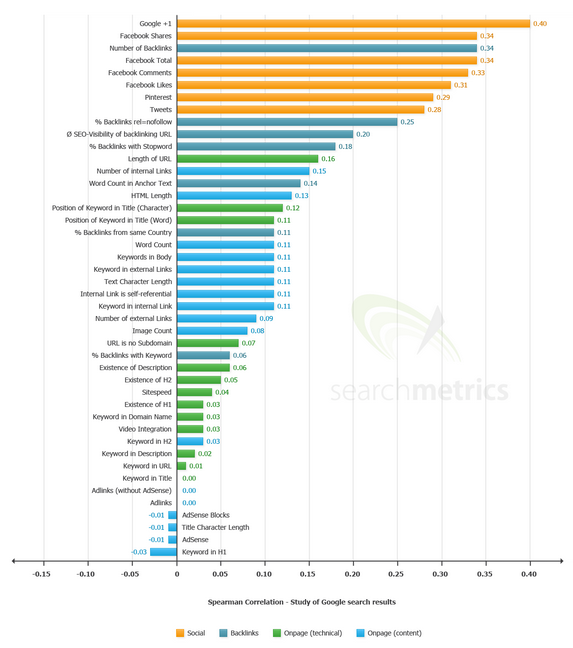How To Enhance Your Social Media for SEO
Katelyn Ahern Digital Project Manager#Digital Marketing, #SEO, #Social Media

Use these simple ways to leverage your social media influence for search engine optimization.
Social media for business has been a long journey of unknowns and the way it is used continues to change rapidly. Finding a way to take personal social channels and turn them into a business asset has become quite the challenge. Are you posting too much? Not enough? Taking the best selfie for your profile? Posting at the right time? Are you providing the right amount of links per post? Should it be two links? One link? No links? It can all get very overwhelming! Let’s keep it simple and start with some basics: how you can use your social media presence to benefit your search engine optimization (SEO).
1. Profile Description
When you first set up your profile on any social network (Facebook, Twitter, etc.), there will be a place to provide a description. While each social network has different requirements and different limits on the number of characters, it is important to take this section seriously, even if it doesn’t seem like an especially important place to put much thought into. Just write a quick recap of what the company is all about, right? But don’t sell it short; this is a great opportunity to quickly describe what services your company provides. The more clear and concise you keep this section the better. This will make it easy not only for people who may find you on this channel to understand what value your company can provide, but also for search engines. People like clarity and so do search engine algorithms; finally something everyone can agree on.
2. Company Information
Provide as much information about your company as possible, even if you think the information is irrelevant. For example, at Diagram, our location usually doesn’t affect our business. After all, we work with clients all over the country, but if a social media profile is asking for it, we include our address. This makes our profile more complete and can help us to be included within local searches. This is particularly true when users are searching on mobile devices, which is becoming more and more popular. The same guidelines pertain to information such as phone number, business hours, and all the other basic questions. A good rule of thumb for basic information on social media is “the more the merrier.” Make it easy for search engines to learn as much as possible about your business. Even more important, your human visitors will be able to find this information no matter where they find you first. (Don’t forget to update all of these if any information changes, ASAP! Finding the wrong contact information for a business can often lead visitors to give up on reaching out to you.)
3. Cater your messages to each platform
When you are updating several social media platforms at once, it is very important to remember that the users on each platform are there for different reasons. Your message must be catered to the social media platform in order to cater to your audience. Users on Twitter are typically looking for short bits of information and a link to read on if necessary whereas someone on Facebook is looking for more personal information and a great image to go along with it. Even further, LinkedIn is filled with business professionals and those aspiring to become such, so its users are interested in links and articles related to their field of work. Every social platform is different, from the character limits to the image dimensions, so make sure you are catering to these requirements as well as user preference in messaging. Google has made improvements to their rankings based on the value of content on your website. And while they don’t track the value of your tweets or Facebook messages, this is still a good habit to get into. Catering the messages to the audience on that platform can help your engagement and thus awareness based on the specific platforms algorithms. This, again, may not affect your SEO ranking directly, but there is nothing to say that those who have a greater engagement rate or higher following on social media will not get recognition for this from search engines in the future. This also helps to remind us the whole point is to provide value for your audience; SEO is just a factor in this goal.
4. Personalized search
When someone is searching in Google and logged into their social media profiles (Google+, for example), and you are connected with them on one of those platforms, you will have a higher possibility of coming up in their search if your business is relevant to what they are searching for. Again, this means that clearly defining what you do on your social media profile is essential for search engines to make this correlation.
5. Social sharing’s affect on SEO
Links that are shared highly on social media can be seen by search engines as higher quality content, and this may lead search engines to be more likely to include your content that has been shared a lot in someone’s search results. The following graph represents Rank Correlation in 2013 for Google USA. This may have changed by now, seeing that SEO is always evolving. Regardless, the orange bars represent social factors that affect your ranking in Google. Although social is just one part of SEO ranking and not directly correlated in some search engines, it can amount to a boost in rankings when done right.

These are some the places I suggest you start to optimize your social media channels for SEO. Keep in mind that SEO ranking takes into consideration numerous variables, so simply making the preceding changes may not change your website traffic dramatically, and the benefits may not be seen right away. SEO is a complicated beast; are you having trouble keeping up with it? Do you have more questions on improving your SEO rank? Leave us a comment or contact us and we can help answer your SEO questions.
Image Credit: Search Metrics
Related Posts

4 Ways to Avoid Disaster When Migrating CMS Platforms
If you have ever migrated from one content management system (CMS) or eCommerce platform to another, you know how many unexpected issues can occur during the migration process.

3 Pro Tips to Make Your HubSpot Workflows Successful
HubSpot's workflows are a powerful tool for connecting with your customers. We share 3 pro tips for getting the most out of your workflows.
Results Matter.
We design creative digital solutions that grow your business, strengthen your brand and engage your audience. Our team blends creativity with insights, analytics and technology to deliver beauty, function, accessibility and most of all, ROI. Do you have a project you want to discuss?
Like what you read?
Subscribe to our blog "Diagram Views" for the latest trends in web design, inbound marketing and mobile strategy.
